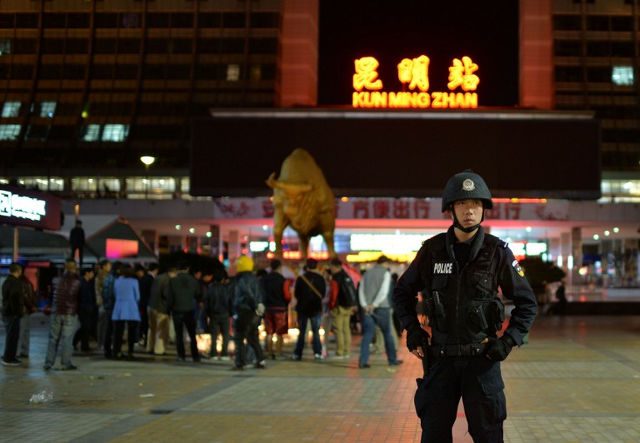SUMMARY
This is AI generated summarization, which may have errors. For context, always refer to the full article.

BEIJING, China – A Chinese appeals court on Friday upheld death sentences for 3 people convicted over a mass stabbing that killed 31 people earlier this year, state media reported.
“The Higher People’s Court of Yunnan Province rejected Hasayn Muhammad’s appeal and upheld the penalty meted out by the Kunming Municipal Intermediate People’s Court last month,” Xinhua said in a brief dispatch from Kunming.
The Intermediate People’s Court in the southwestern Chinese city had convicted and sentenced to death Hasayn Muhammad and two others for “leading a terrorist group” which planned and carried out the attack at the city’s railway station on March 1.
Though Xinhua only mentioned Hasayn Muhammad’s appeal, it said that the court upheld the sentences of the other two men as well.
In a separate report on its website, Xinhua said the court also upheld a term of life in prison for a pregnant woman also convicted for taking part in the attack.
The next step in the judicial process is for the death sentences to be reviewed by China’s Supreme Court.
The bloodshed in Kunming, located in the southwestern province of Yunnan, also saw more than 140 people wounded and was dubbed “China’s 9/11” by state-run media.
Beijing blamed it on “separatists” from the resource-rich far western region of Xinjiang, where at least 200 have died in attacks and clashes between locals and security forces over the last year.
The mass knifing in Kunming was the biggest-ever violent incident against civilians outside the region. Incidents have grown in scale and sophistication and have spread outside the restive area since late last year.
Rights groups accuse China’s government of cultural and religious repression they say fuels unrest in Xinjiang, which borders Central Asia.
China defends its policies, arguing it has boosted economic development in the area and that it upholds minority and religious rights in a country with 56 recognised ethnic groups. – Rappler.com
Add a comment
How does this make you feel?
There are no comments yet. Add your comment to start the conversation.